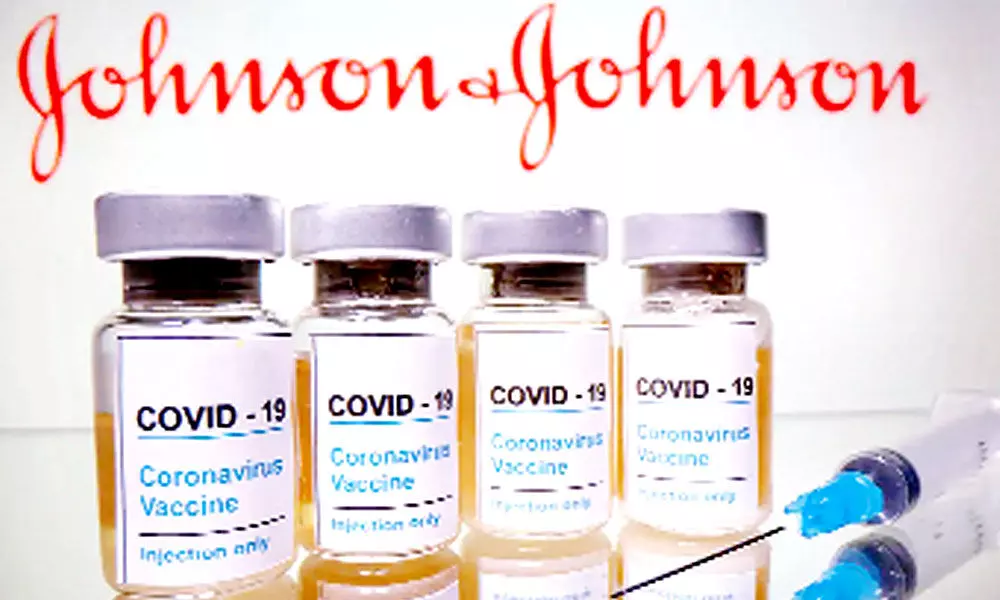How serious the J&J vax blood clot risks?
A rare but serious blood-clotting side effect prompted US health officials to call for a pause in the use of J&J’s one-shot Covid-19 vaccine. Here’s what we know
image for illustrative purpose

Any side effect is important to assess - especially with vaccines, given that they are administered to otherwise healthy people. But this partciular issue - a duo of thrombosis, or blood clotting, and thrombocytopenia, a loss of platelets that normally leads to bleeding - is incredibly rare
Sam Fazeli, a Bloomberg Opinion contributor who covers the pharmaceutical industry for Bloomberg Intelligence, answers questions about Johnson & Johnson's Covid-19 vaccine after US health officials recommended pausing use of the shot amid concerns that it may trigger rare but potentially deadly blood clots. The conversation has been edited and condensed.
US officials recommended the pause after six women who received it developed this blood-clot condition. How serious is this?
Any side effect is important to assess - especially with vaccines, given that they are administered to otherwise healthy people. But this particular issue - a duo of thrombosis, or blood clotting, and thrombocytopenia, a loss of platelets that normally leads to bleeding - is incredibly rare. It is a very difficult condition to treat. And we have learned in Europe that it's also not just something that affects the brain but also the intestines. Not only is its fatality rate relatively high - with one of the six cases in the US being fatal - but we don't know how well these individuals recover from the clotting events.
Speaking of Europe, similar clotting issues have arisen with the use of the AstraZeneca PLC vaccine, prompting the UK and some European countries to restrict its use to certain age groups. Is there a connection and could other vaccines pose similar risks?
I had worried that the J&J vaccine, as well as Russia's Sputnik V and China's CanSino shots, would suffer the same issues as the Astra vaccine. That's because they all use an adenovirus - a virus other than SARS-CoV-2 - as their delivery technology for the "spike protein" of the virus, which triggers the immune response. And now we know that the J&J vaccine does have a risk, though it's not clear if it's at the same frequency as that of the Astra shot. I now think there is a higher chance that Sputnik V, which uses the same type of adenovirus as J&J, may have similar risks. We do know from the US Food and Drug Administration that 180 million doses of Pfizer Inc.-BioNTech SE and Moderna Inc. vaccines - which use a different immunization method based on messenger RNA - have been administered, and this rare combination of thrombosis and thrombocytopenia has not been seen. We also know from the UK that after 14 million doses of the Pfizer-BioNTech vaccine, just two cases were seen. It is my view that, if indeed it's the adenovirus that's causing the issue, the vaccine being developed by Novavax Inc. is not likely to induce the same rare side effect because it doesn't use that technology, either.
How do these risks compare with risks of other non-Covid vaccines or with other causes of blood clots like birth-control medication?
Rare side effects with other vaccines can happen, but none are being rolled out to the whole world at the pace that we are doing with Covid-19 vaccinations. Also, I am going back to the fact that the combination of thromboses and thrombocytopenia is normally extremely rare. This is not what you see with oral contraceptives or after long-haul flights. Those clotting issues, often deep-vein thromboses, are relatively easy to treat if caught early. This rare vaccine-induced condition, called Vaccine Induced Thrombosis and Thrombocytopenia (VITT), is new.
How do you know if your platelets might be the type of platelets that put you at risk for a clotting issue with the vaccine?
I wish someone knew the answer. Its not the platelets themselves that are the problem, it's an immune reaction to a protein called platelet factor-4 (PF-4) that causes the problem. So why do some people get this rare immune reaction and not others? That's the question that every scientist wants the answer to. It could be that for some reason the virus breaks up and spills its genetic material (DNA), which then binds to PF-4 and sets off an immune reaction - but why is this so rare? I wonder if the people who suffer from this have a rare immune "haplotype" which, combined with the above, set off the reaction.
How much of a setback is this for J&J and the vaccination effort and Covid fight? Will this contribute to the idea that the J&J shot is a lesser vaccine?
The answer to this is, it depends where you live. The US has enough doses of the Pfizer-BioNTech and Moderna vaccines to cover its population up to about 300 million people by the end of July. The European Union also has enough doses of these two vaccines to get a similar number of people covered. But to get closer to its entire population of 445 million, it will need others, such as Astra and J&J. It's the rest of the world that is much more exposed. Astra and J&J, as well as Sputnik V, are some of the key vaccines for the rest of the world, as well as the vaccines from China, which appear to have lower efficacy. So this is a problem for the global recovery.
How should we go forward? Should use be limited by age? Gender?
That's a possibility, but I do not think that the US needs to do this. But the EU, the UK and certainly the rest of the world probably needs to make this risk-benefit calculation. (Bloomberg)

